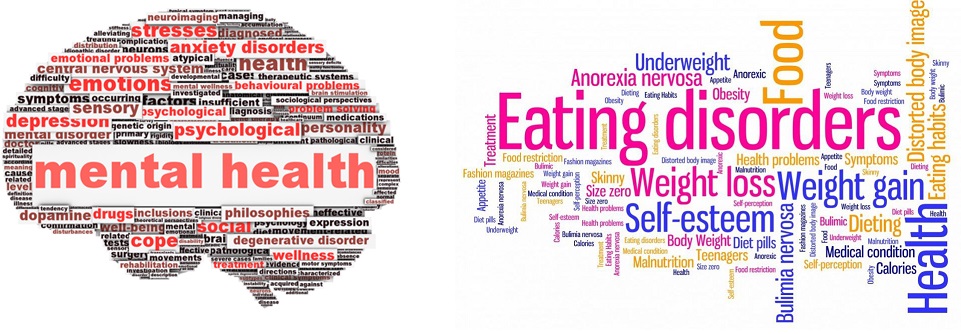Our healthcare team at www.lifepharmacy.co.uk have compiled this blog post for anyone who would like to find out more about eating disorders and mental health. An eating disorder is a mental illness where one has an unhealthy attitude towards food and their diet, which can lead to health problems such as deficiencies, skin and hair problems and fatigue. This unhealthy attitude can include eating too much or too little.
How do you know if you have an eating disorder?
Some of the most common eating disorders include:
- Anorexia: Not eating enough food out of the desire to lose weight
- Bulimia: Overeating and then deliberately vomits out of the desire to lose weight.
- Binge eating: Eating a large amount of food in a short period of time, resulting in one feeling guilty or uncomfortable.
Common symptoms for having an eating disorder include worrying a lot about your weight, eating very little food, frequently lying about the amount of food you have eaten and deliberately vomiting (especially after eating).
Some physical signs include feeling dizzy, headaches, irregular patterns in your skin and hair (for example if your skin is unusually dry or your hair falls out a lot) and fatigue. If you know someone who has an eating disorder or think you may have one, you can speak to your local GP and if it is something you feel anxious about, you can speak to a friend or family member, or ask them to come to the GP with you.
You can also speak to an advisor at Beat charity in confidence 0808 801 0677. It is also important to ensure you receive the nutrition you need by taking vitamins and supplements.
We suggest:
If you feel uncomfortable with swallowing tablets
Eating disorders are not as openly spoken about in comparison to other health issues due to the stigma around mental health. Help us raise awareness about eating disorders especially as National Eating Disorders Awareness Week is around the corner (25th February).
Link to Beat’s website: https://www.beateatingdisorders.org.uk/






